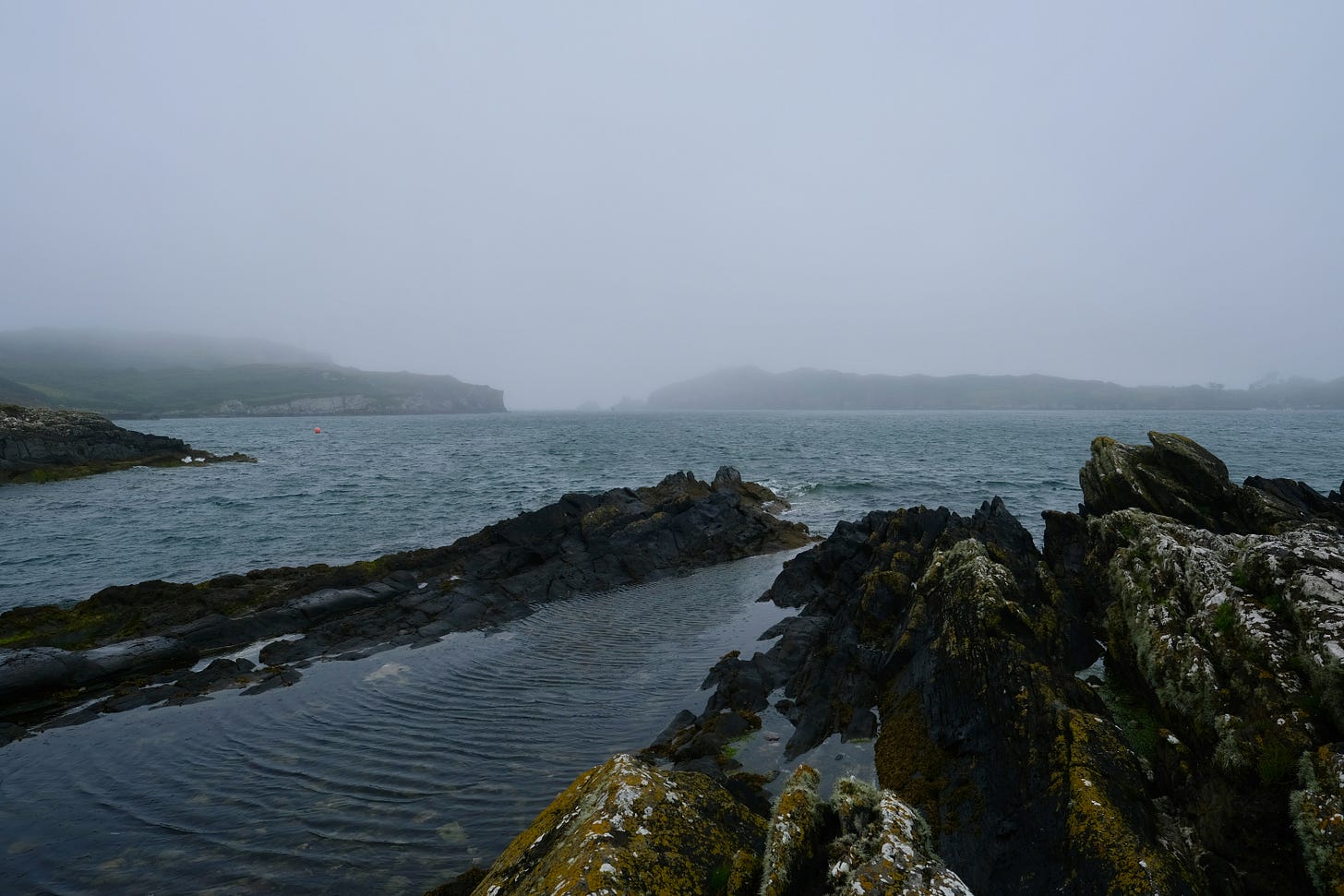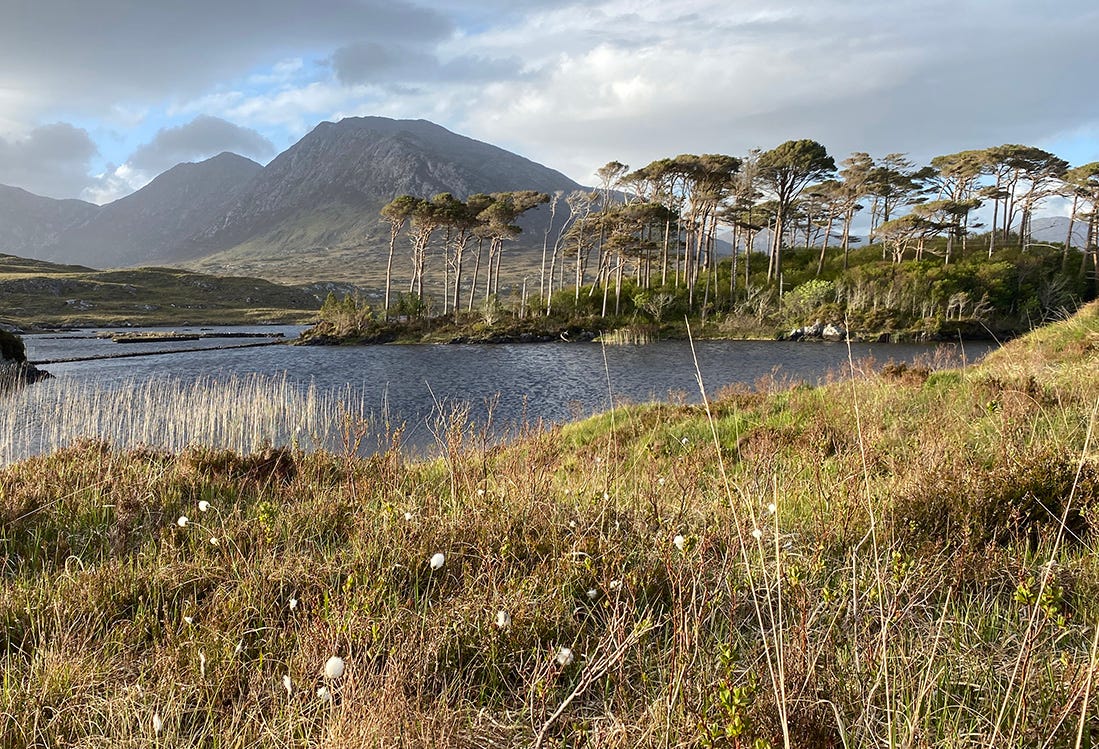Just the briefest of notes from me this week; the dust is starting to settle following the culmination of the 2025 BnM Accelerate Green Programme. It’s been a hoot and a half working alongside the nine new additions to the best community of climate+biodiversity solution providers in Ireland.
If you’re working on something in this space, stay tuned: there’ll be some big announcements later this summer about the 2026 intake.
A small correction (my first!) from Issue 91: I incorrectly stated that Kieran Ivers was involved with the project to develop a new ferry service in Cork Harbour. Kieran has no involvement with the project, which is led by Aidan Coffey, formerly the founder of the DFDS Rosslare to Dunkerque ferry service.
Thanks to the eagle-eyed reader who spotted the error 👀
It’s always lovely to hear from the SDG Alpha community, so do please keep sending in any news items, or corrections, for me to pass on!
Here’s the news round-up for Issue 92:
Greencoat Renewables has listed on the JSE’s AltX exchange, giving South African investors access to its €2.1 billion pan-European renewable energy portfolio. The move marks a first for an Irish-listed company on the exchange and reflects growing appetite for green infrastructure exposure across emerging markets.
Danish energy giant Ørsted is putting its portfolio of Irish onshore wind farms up for sale, including operational and development-stage assets. The move comes as Ørsted refocuses on offshore wind and divests non-core holdings, with analysts estimating the Irish portfolio could fetch up to €600 million.
DP Energy and ESB have announced plans to develop the 105MW Lyra Wind Farm in County Mayo, comprising up to 14 turbines. The project is currently in early-stage assessments and will include community engagement and environmental studies ahead of a future planning application.
A new aquaculture licence has been approved for a mussel farm in Kinsale Harbour, covering over 16 hectares of seabed. The licence, granted to Woodstown Bay Shellfish Limited, allows for rope-grown mussel cultivation using floats and longlines, and includes conditions to protect navigation and the local marine environment.
A planned €25 million bioenergy facility near Nenagh, Tipperary, has been appealed to An Bord Pleanála. The plant, proposed by Green Energy Nenagh Ltd, aims to process up to 90,000 tonnes of organic waste annually into biomethane and fertiliser, but has faced objections over odour and traffic concerns.
KEO International has acquired Dublin-based sustainability consultancy Meehan Green, bolstering its global ESG and green building credentials. The move strengthens KEO’s capabilities in climate advisory, net zero pathways, and environmental compliance, with Meehan Green now set to lead its global sustainability strategy.
Coillte has received planning permission for its Derryclare peatland redesign project in Connemara, which aims to rewet and restore degraded bog to improve carbon sequestration, biodiversity, and water quality. The project is part of Coillte’s broader plan to rehabilitate 33,000 hectares of peatland and contribute to national climate and biodiversity targets.
Delighted to announce this win for an Accelerate Green alumni: EVHACS and Mitsubishi Electric have unveiled the world’s first combined heat pump and EV charger, enabling heating, cooling, and vehicle charging from a single compact unit. Designed to cut costs and grid demand, the tech supports smart scheduling and dynamic load balancing, with rollout already underway in Ireland.
Gas Networks Ireland and Research Ireland have launched a €225,000 challenge to support R&D projects focused on decarbonising the gas network. The call seeks innovative solutions in areas like biomethane, hydrogen, and carbon capture, with funding available for projects led by public research bodies.
Trifecta Ireland, a new think tank led by energy industry veterans Lesley O’Connor and Conall Bolger, has launched with the goal of shaping Ireland’s energy transformation agenda. The group will develop a shared roadmap to 2050, focusing on aligning policy, investment, and innovation to accelerate decarbonisation and unlock infrastructure investment. The Times features an excellent piece from Lesley, outlining exactly where she believes Trifecta can deliver the most impact.
The Department of Climate, Energy and the Environment has announced €27 million in funding to support Ireland’s shift to a circular economy, with €19.5 million allocated to local authority-led innovation projects. The Circular Economy Innovation Fund, open to private sector and social enterprise applications, aims to scale solutions that reduce waste and keep materials in use for longer.
A new Eurobarometer poll shows 62% of Irish respondents view nuclear energy positively, placing Ireland among the most pro-nuclear nations in Europe. Despite this, Ireland remains one of only four countries with no domestic nuclear power plans, continuing to rely instead on imports; it’s worth emphasising that the VAST majority of the energy we currently import is carbon-heavy, “natural” gas. A portion of the electrons flowing on our grid does come from nuclear plants in the UK; this percentage will increase when the Celtic Interconnector comes online, and we can grab hold of those sweet, sweet French atomic electrons. Despite the “zero atomic” position that we have stumbled blindly into, nuclear energy will indeed be keeping the lights on in Ireland in the coming years - it’s just that (as usual) we’ve outsourced the grown-up, difficult decision-making to someone else. Kudos to advocacy group 18for0 for continuing to raise this issue, as the argue that it’s time for Irish policymakers to reassess their stance.
The Department of Public Expenditure, Infrastructure, Public Service Reform and Digitalisation has opened a public consultation on accelerating infrastructure delivery, seeking views on how to streamline planning, procurement, and governance processes. The aim is to improve delivery timelines for key projects under the National Development Plan, with feedback welcomed until 12 July.
Common Purpose has launched the Leaders for Nature programme, aimed at equipping senior leaders across sectors with the skills to embed nature-positive approaches in their organisations. The initiative includes immersive experiences, expert-led modules, and international collaboration, all focused on reversing nature loss and driving systemic change.
EirGrid is seeking public input on the next phase of its Kildare-Dublin Grid Reinforcement Project, which will deliver two new substations and associated circuits to boost grid capacity and enable more renewables in east Kildare and south-west Dublin. With the consultation open until 27 June, the public is invited to help identify optimal zones and technology solutions, with a Community Benefit Fund and local forum planned to support host communities.
Researchers at Maynooth University are inviting SME owners and leaders in Ireland to take part in a short international survey exploring business attitudes to climate change and sustainability. The five-minute study will help shape global insights into how leaders of small firms perceive and act on environmental challenges, with full anonymity guaranteed.
A public survey from Codema is open to gather views on how Dublin can reduce its reliance on fossil fuels and accelerate the energy transition across homes, transport, and workplaces. Respondents will be entered into a draw for two free tickets to the Decarbonising Dublin Summit 2025, where survey results will be unveiled.
Energy Innovators Ireland are hosting an informal meetup on Monday 16 June at Neary’s in Dublin, bringing together anyone interested in the latest developments in renewable energy and sustainable tech. It’s a chance to connect, share ideas, and explore how innovation can support climate solutions.
Finally, it’s lovely to be able to share a small win from the corner of the country I currently call home: VOICE Ireland and Fingal County Council have launched a new Reusable Cup Project to cut single-use waste across cafés in Malahide, and Rush. The pilot supports participating businesses with resources and training, aiming to normalise reuse in local communities and reduce dependence on disposable cups.







